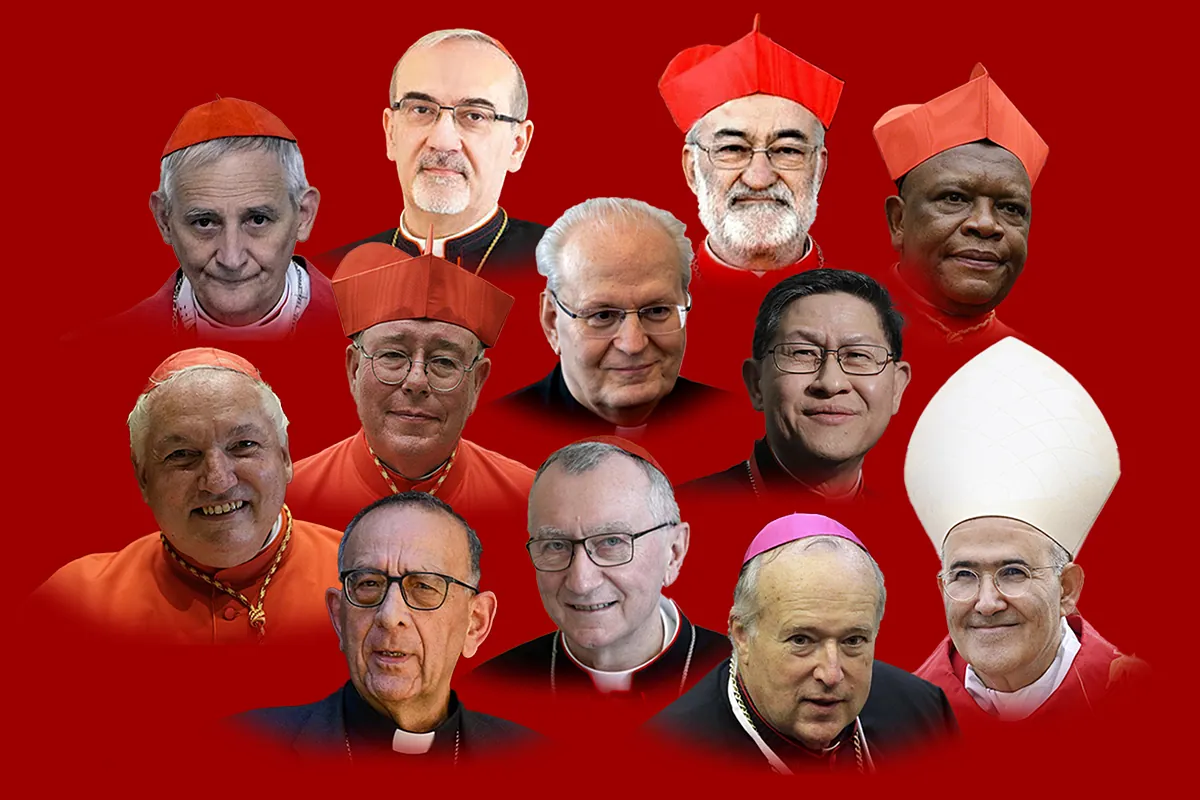Next Pope: Italy, Hungary, Spain Vie for Papacy – Key Contenders and Predictions
Editor’s Note: Speculation surrounding the next Pope intensifies as the College of Cardinals prepares for the conclave. Italy, Hungary, and Spain emerge as key contenders, each bringing unique perspectives and challenges to the papacy.
Why This Matters: The Next Pope and the Future of the Catholic Church
The selection of the next Pope is a pivotal moment for the Catholic Church, impacting billions globally. This article examines the leading candidates from Italy, Hungary, and Spain, analyzing their theological stances, leadership styles, and potential implications for the Church's future. Understanding the key contenders helps us grasp the potential directions the Catholic Church may take under its next leader, influencing everything from social justice issues to internal reforms and global outreach. Keywords such as Papal Conclave, Catholic Church, Next Pope, Cardinal, Vatican, Succession, Election, Italy, Hungary, Spain, and Church Reform will be explored throughout this analysis.
Key Takeaways
| Candidate Origin | Potential Strengths | Potential Challenges |
|---|---|---|
| Italy | Strong Papal tradition, deep Church understanding | Potential for perceived "insider" bias |
| Hungary | Conservative stance, strong moral authority | Potential for alienation of progressive Catholics |
| Spain | Bridge-building potential, global perspective | Less prominent in recent papal history |
Next Pope: Italy, Hungary, and Spain in the Spotlight
Introduction: The Weight of the Papacy
The selection of a new Pope is never simple. The next pontiff will inherit a Church facing complex challenges, including declining attendance in some regions, internal divisions, and evolving societal views on moral issues. The candidates from Italy, Hungary, and Spain each represent distinct approaches to navigating these difficulties.
Key Aspects: Contender Profiles
Italy: Italian Cardinals consistently hold significant influence within the Church. Their deep understanding of the Vatican's inner workings and historical context is a strength. However, this could also be perceived as a limitation, potentially leading to a lack of fresh perspectives.
Hungary: Hungary's Cardinal Péter Erdő represents a more conservative wing of the Church. His emphasis on traditional doctrine and strong moral authority resonates with many Catholics but could alienate those seeking a more progressive approach.
Spain: While less prominently featured in recent papal elections, Spanish cardinals offer a potentially unifying force. Their global perspective and ability to bridge divides within the Church could be invaluable in addressing global challenges.
Detailed Analysis: Weighing the Strengths and Weaknesses
The analysis of each candidate requires considering their theological positions on issues such as environmental stewardship, social justice, and ecumenism. Their leadership styles – collaborative versus authoritative – will also significantly influence their papacy. Comparisons between these candidates' approaches to governance, communication, and pastoral care are crucial for a complete understanding of their potential impact.
Interactive Elements: Deep Dive into Key Issues
Theological Stances: Tradition vs. Reform
The next Pope's theological positions will shape the Church's response to contemporary issues. This section examines the candidates' stances on topics such as gender equality, LGBTQ+ inclusion, and climate change, comparing their approaches to those of their predecessors. We will analyze how their views might impact Church doctrine and practice.
Global Challenges: Navigating a Complex World
The Catholic Church faces challenges globally. This section explores how each candidate might address issues such as religious persecution, poverty, and conflict, analyzing their potential approaches to international relations and humanitarian aid.
People Also Ask (NLP-Friendly Answers)
Q1: What is the Papal Conclave?
A: The Papal Conclave is a secret meeting of the College of Cardinals to elect a new Pope following the death or resignation of the previous one.
Q2: Why is the next Pope's selection important?
A: The next Pope's selection is crucial because it shapes the future direction of the Catholic Church, influencing its teachings, practices, and global impact.
Q3: How is the next Pope chosen?
A: The next Pope is chosen by a two-thirds majority vote of the cardinals participating in the Papal Conclave.
Q4: What are the main challenges facing the next Pope?
A: The main challenges include internal divisions within the Church, declining attendance in some areas, and adapting to evolving societal views on moral issues.
Q5: When will the next Pope be elected?
A: The timing of the conclave is determined following the death or resignation of the current Pope; a date is usually announced soon after.
Practical Tips for Understanding the Next Papal Election
Introduction: Staying informed about the Papal election requires understanding the process, the key players, and the issues at stake.
Tips:
- Follow reputable news sources: Rely on established news organizations for accurate information.
- Understand the College of Cardinals: Learn about the cardinals' backgrounds and theological stances.
- Research the candidates: Explore each candidate's public statements and writings.
- Follow Vatican News: Stay updated on official communications from the Vatican.
- Engage in respectful discussion: Share your insights and engage in civil discourse with others.
Summary: These tips provide a framework for staying informed and engaging meaningfully with the upcoming Papal election.
Transition: Let's conclude by summarizing the key takeaways and insights from this article.
Summary (Resumen)
The next Papal election is a significant event with far-reaching consequences. The candidates from Italy, Hungary, and Spain each offer unique perspectives and present distinct challenges and opportunities for the future of the Catholic Church. Understanding their backgrounds, theological stances, and leadership styles is crucial for informed participation in the global conversation surrounding this important event.
Closing Message (Mensaje Final)
The selection of the next Pope will undoubtedly shape the Catholic Church for years to come. What qualities do you believe are most essential in the next leader of the Church? Share your thoughts and engage in the discussion.
Call to Action (CTA)
Subscribe to our newsletter for updates on the Papal election and other significant news in the Catholic Church. Share this article with your network to help spread awareness. [Link to Newsletter Signup]

